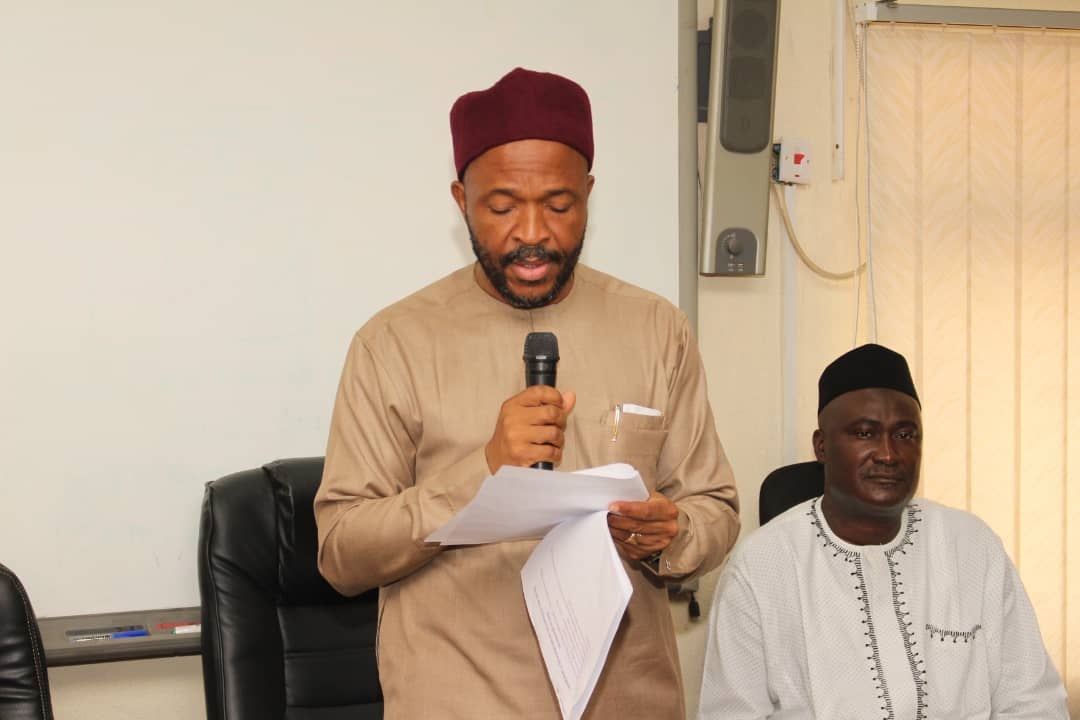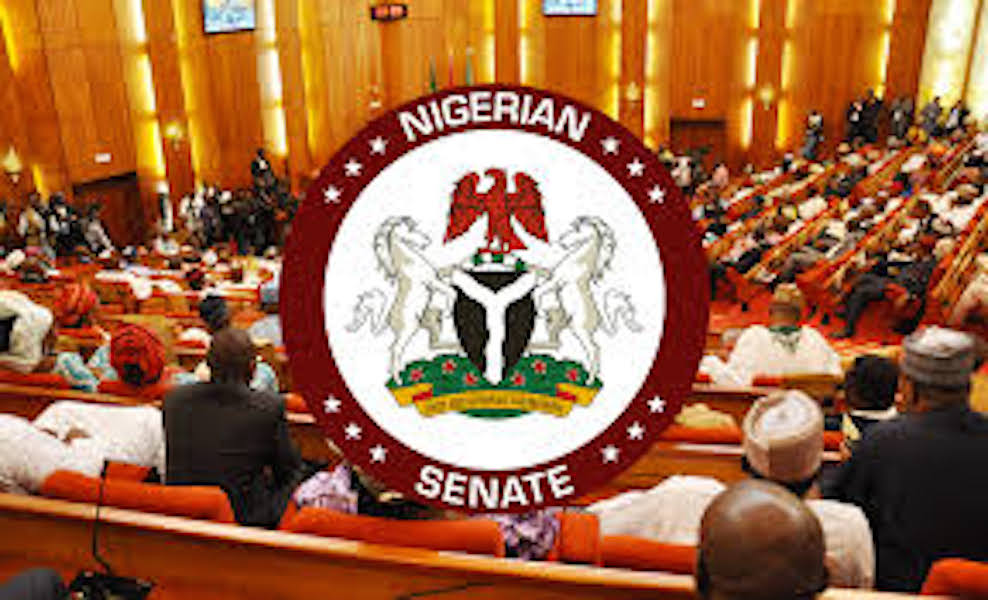News
Resign and go into farming, ASUU tells Education minister

The Academic Staff Union of Universities (ASUU) has told the Minister of State for Education, Chukwuemeka Nwajuiba, to resign his appointment as minister “and take to farming as a worthy national service.”
The union stated this on Tuesday, October 6, in response to a statement credited to the minister telling the striking ASUU members to go to farm if they would not want agree with the government’s terms.
The union said Nwajiuba’s statement reflected his shallow understanding of the academic profession and the low premium the government placed on education.
ASUU Chairman, University of Ibadan, Prof. Ayo Akinwole, said this, adding that the minister had “displayed his naivety on educational matters”.
He said, “If the Minister of State for Education is interested in farming, he should resign his appointment and stop displaying his cluelessness of the problems in the education sector.
“We are on a just fight to ensure that those in public offices become responsive and responsible to the masses they swore to serve.
“They must fund public education. We have been on the same salary since 2009. That is no longer sustainable. The universities are being run with personal sweats of lecturers while politicians siphon monies for personal aggrandizement.
According to Akinwole, the scarcity of farmers is a reflection of the failure of the government.
He said lecturers decided to continue to fight parasites like Nwajiuba, presiding over a ministry where no Nigerian university had been ranked among the first 100 in the world.
He said if the President Muhammadu Buhari government was not paying lip service to education, he would not have consistently reduced budgetary allocation and funding to the sector since assumption of office.
He said public university lecturers were owed earned academic allowances from 2013 to date and challenged the minister to declare if he had been owed allowances since he assumed office.
He said available statistics showed salaries of university lecturers were below amount being paid to academics in polytechnics and colleges of education.
The ASUU chairman also said, “We cannot accept IPPIS that is against the laws of the land and which fails to recognise the uniqueness of the academic profession and culture. We have brought an alternative using our members’ money. People like this Minister of State mirror the disdain of the ruling class for the workers and the people of the country.”
News
Drama as Delta workers boo Gov Oborevwori over minimum wage

Drama as Delta workers boo Gov Oborevwori over minimum wage
Delta State workers expressed their disappointment with Governor Sheriff Oborevwori on Wednesday as he failed to address the issue of minimum wage during the 2024 May Day celebration in Asaba, themed “People First.”
Anticipating news on the minimum wage, the workers were disheartened when the Governor concluded his speech without mentioning it, prompting them to chant, “no, no, no, we no gree, pay us our minimum wage.”
Despite the interruption, Oborevwori stood firm, stating, “Listen to me, listen to me, calm down, calm down, you cannot cajole me.”
The celebration, which included a march past by various affiliate unions, turned sour due to the workers’ dissatisfaction with the governor’s silence on the wage issue.
READ ALSO:
- Neighbour, son beat mother of four to death in Edo
- London sword attack leaves British-Nigerian teenager dead
- Lagos uncovers 86 rooms under Ikoyi bridge where tenants pay N250,000 rent
According to a union leader, previous attempts to address the matter with the Governor proved futile.
In response, Governor Oborevwori announced plans to establish a committee to address the workers’ demand for salary increases amidst prevailing economic challenges. He praised the workers for their support and assured them of his administration’s commitment to workers’ welfare.
“I have listened attentively to your requests, and I have taken note of them; they are, no doubt, legitimate demands and as a responsible government, I will deliberate with my team on how best to address them within the limits of the resources available to us,” he affirmed.
In a statement delivered by Comrade Goodluck Ofobruku, the State Chairman of the Nigeria Labour Congress, NLC, he emphasized the importance of politicians keeping their promises, stating, “We want promise keeper politicians because, as workers, we keep records of promises.”
Drama as Delta workers boo Gov Oborevwori over minimum wage
News
Two million bank accounts closed over BVN, NIN, others

Two million bank accounts closed over BVN, NIN, others
Commercial banks in Nigeria closed 2.021 million bank accounts in the first quarter of 2024, Q1’24, to clean their books of questionable accounts and comply with regulatory orders on the linkage of bank accounts to the National Identity Number, NIN.
This is contained in a report by the Nigerian Interbank Settlement System, NIBSS, which also indicated that the number of inactive bank accounts grew month-on-month, MoM, by four million or 2.0 per cent to 19.7 million in March 2024 from 19.3 million in the previous month, February.
A bank account is classified inactive when it records zero transactions including deposits, withdrawals, transfers or point-of-sale transactions for six months.
READ ALSO:
- Senate insists on 16 years as requirement for tertiary institution admission in Nigeria
- Minimum wage: Labour threatens nationwide strike by end of May
- UCL: Füllkrug gives Dortmund 1-0 first-leg win over PSG
However, details of the “Industry Bank Account Database”, a monthly data reported by banks, and compiled by the Nigerian Interbank Settlement System, NIBSS, also indicated that the number of active bank accounts grew by 6.62 million or 3.0 per cent to 219.64 million from 213.02 million in February.
Recall that in December 2023, the CBN issued a directive to all commercial banks in the country to restrict tier-1 accounts without proper Biometric Verification Number, BVN, and National Identity Number, NIN, that are not linked by Thursday, March 1st, 2024.
According to NIBSS data on BVN enrollment count, 61.6 million Nigerians have BVN as of April 2024.
Two million bank accounts closed over BVN, NIN, others
News
Senate insists on 16 years as requirement for tertiary institution admission in Nigeria

Senate insists on 16 years as requirement for tertiary institution admission in Nigeria
The Nigerian Senate has moved to clarify recent discussions regarding the minimum age requirement for admission into tertiary institutions.
The red chamber assured Nigerians that the current age requirement of 16 years has not been altered and that recent comments suggesting an increase to 18 years were personal opinions.
READ ALSO:
- Minimum wage: Labour threatens nationwide strike by end of May
- UCL: Füllkrug gives Dortmund 1-0 first-leg win over PSG
- Adopt quarterly exchange rate for Customs duty, economist advises FG
Chairman of the Senate Committee on Media and Public Affairs, Adeyemi Adaramodu, emphasised that any changes to the age requirement would require legislative action following due process.
Adaramodu explained in an interview with journalists that comments made by the Minister of Education, Prof. Tahir Mamman, about increasing the minimum age limit were not legally binding but rather personal opinions.
The Minister of Education had previously hinted at plans to review and raise the minimum age for admission into tertiary institutions to 18 years.
Senate insists on 16 years as requirement for tertiary institution admission in Nigeria
-

 metro2 days ago
metro2 days agoLabour Day: Nigerian workers are dedicated, resilient, says NURTW leader
-

 Education3 days ago
Education3 days agoBREAKING: JAMB releases 2024 UTME results
-

 Auto21 hours ago
Auto21 hours agoAppeal court takes over NURTW case as NIC withdraws
-

 metro6 hours ago
metro6 hours agoSecurity forces, vigilantes arrest kidnapper terrorising communities in Kogi
-

 News2 days ago
News2 days agoFG set to repatriate 20,000 Nigerians from Chad, Cameroon
-

 metro2 days ago
metro2 days agoWoman arrested in Ogun after husband commits suicide
-

 metro3 days ago
metro3 days agoBREAKING: Suspected herders kill 3 mourners, farmers in Enugu
-

 News2 days ago
News2 days agoAmid fuel scarcity, petrol marketers threaten to withdraw services over ₦200bn debt



















You must be logged in to post a comment Login